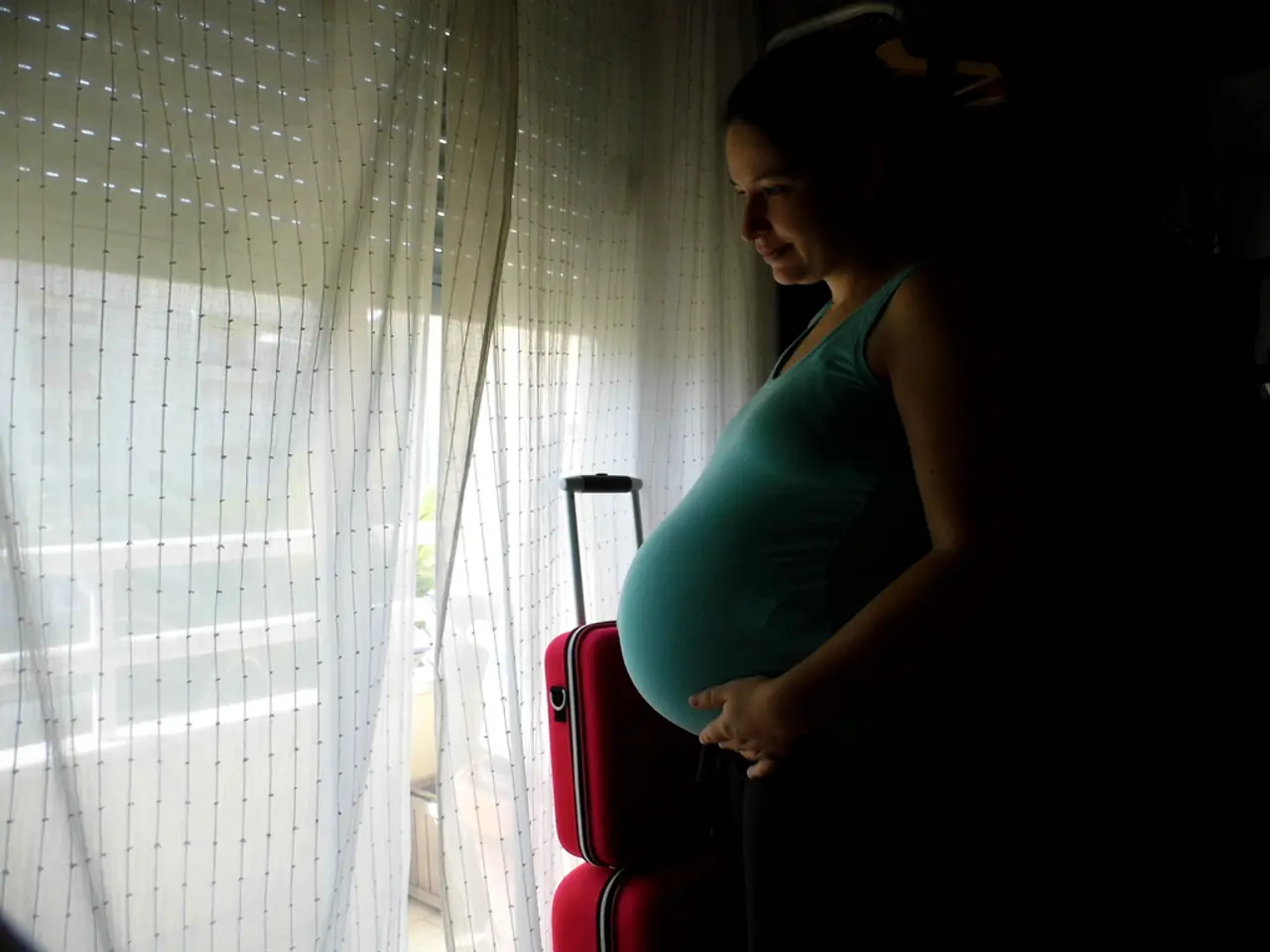Essential Health Safety Guidelines for Travelers: Crucial Insights for Travel Abroad
Traveling Abroad: A Guide for Women of a Certain Age
Navigating healthcare complexities while traveling internationally can be challenging, especially for women of a certain age. University or organizational traveler's medical services can provide valuable guidance, helping to ensure a safe and healthy journey. Here are some key considerations to keep in mind.
Pre-Travel Medical Consultation and Vaccinations
Before embarking on your trip, schedule a thorough checkup with your doctor to assess your overall health and update routine vaccinations. Some countries require proof of specific vaccines for entry, such as yellow fever or typhoid. Visiting a specialized travel clinic may be recommended for less common vaccinations based on your destination.
Managing Prescription Medications
It is crucial to research the regulations of each destination regarding prescription medications, particularly narcotics and psychotropics. Carry medications in their original containers with copies of prescriptions and pack them in carry-on luggage to avoid loss. Consulting embassies or consulates can help ensure compliance with local laws.
Travel Insurance with Medical Coverage
Obtaining comprehensive travel insurance is vital for access to emergency medical care, hospital stays, and potentially medical evacuation and repatriation. Some insurance plans satisfy visa entry requirements (e.g., Schengen visa) and provide 24/7 emergency assistance worldwide, which is especially important for older travelers.
Understanding Healthcare Systems at Destination
Healthcare access varies widely; many countries have public and private healthcare systems. Public systems usually offer universal coverage but may involve long wait times and limited English proficiency among staff. Private healthcare tends to have shorter wait times, better amenities, and English-speaking providers but at higher costs. Research the quality, availability of specialized services (e.g., gynecology), and cost considerations for your destination.
Carrying Medical Records and Documents
Maintaining up-to-date medical records, including details on chronic conditions, medications, allergies, and any recent tests, is advisable. These records facilitate faster and more effective treatment if medical care is needed abroad.
Emergency Preparedness and Local Support
Knowing emergency procedures, identifying local healthcare providers, and having access to reliable communication channels are important. For example, travelers supported by programs like TRICARE receive guidance on emergency care and chronic condition management overseas.
Special Considerations for Pregnant Women
Pregnant women should be aware of airline restrictions based on pregnancy stage and legal entry requirements for medical treatment abroad. Additionally, giving birth abroad (such as in the United States) can be very costly, and insurance plans often do not cover childbirth outside the home country. Special visa considerations also apply to pregnant travelers to prevent "birth tourism."
Packing for Health and Safety
A travel first aid kit should be packed with over-the-counter remedies for common ailments and essential supplies like bandages, antiseptic creams, and thermometers. Electrolyte powder or tablets can restore the balance of essential minerals in the body if there is significant fluid loss due to illness, heat, or physical exertion. A copy of your prescription for glasses or contact lenses, along with necessary supplies like contact lens solution and an eyegloss repair kit, should be packed for eye health.
Other Important Considerations
Embarking on an international adventure requires careful planning for health and safety. A high SPF sunscreen, a wide-brimmed hat, and sunglasses with UV protection are necessary for adequate sun protection. A signed and dated letter from a prescribing physician detailing health conditions and necessary medications is important when traveling with narcotic or injectable medications.
Depending on the destination and planned activities, additional precautions may be necessary to address specific health issues, such as getting necessary vaccinations, packing specialized medical equipment, or taking preventive measures against travel-related illnesses. The U.S. Embassy can be a crucial point of contact in case of an emergency medical situation or other crisis during international travel.
Travel Registry and Insurance
Registering trips in the U-M Travel Registry is crucial for university-related travel, ensuring connection and support in case of emergencies. Comprehensive travel medical insurance is a must for any international trip, with the University of Michigan (U-M) requiring coverage for university-related events. A dentist visit before the trip may provide recommendations or treatment to help maintain oral health during the journey.
Insect Repellent and Hygiene
A DEET (diethyltoluamide) containing insect repellent can be an effective defense against mosquitoes and other biting insects. Properly chosen personal hygiene products will help maintain comfort and protection throughout the trip, especially for skin and senses in an unfamiliar environment and climate.
Nutrition and Hydration
Proper nutrition and hydration are essential for maintaining health and energy levels during the trip, including paying attention to water quality and bringing water purification tablets or a portable water filter. Over-the-counter medications such as anti-diarrheals and laxatives can address digestive issues like diarrhea or constipation. Earplugs can help protect hearing from the noise of crowded airports, bustling city streets, or hotel roommates.
The International Association for Medical Assistance to Travelers (IAMAT) maintains a network of English-speaking doctors available 24/7 with a set fee schedule. Properly selected medical supplies should include a sufficient supply of all prescription medications, kept in their original packaging with labels.
In summary, meticulous health planning, insurance coverage, and awareness of local healthcare services are critical for women of certain ages traveling internationally to manage existing health needs and respond effectively to emergencies.
- The style of travel for women of a certain age should include consulting a travel clinic for less common vaccinations, based on the destination they plan to visit, due to the importance of maintaining health and safety while traveling abroad.
- Incorporating physical health, such as pre-travel medical consultations and vaccinations, into a lifestyle of health-and-wellness is essential for women's health, especially during travel when exposure to various environments and potential health risks is increased.
- To ensure a comfortable and safe travel experience, consider investigating the healthcare systems in the destination countries, as understanding the differences between public and private healthcare and the costs associated with them can make for smoother transitions when seeking needed medical assistance.




